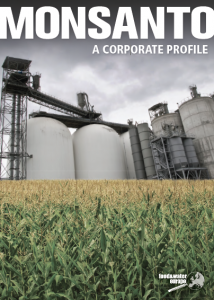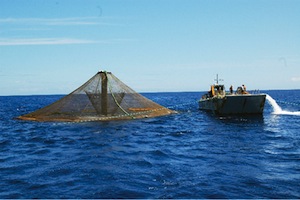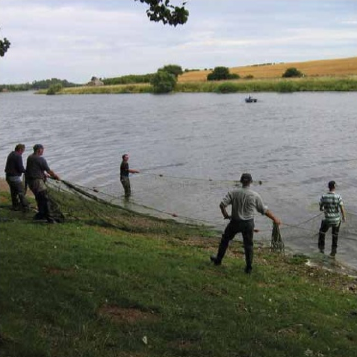Organizaciones sociales piden a la nueva Ministra un cambio de rumbo urgente en la política española sobre transgénicos
Bruselas, Madrid – Una encuesta realizada a agricultores ecológicos de EEUU demuestra el fracaso de la denominada “coexistencia” entre los cultivos transgénicos y los ecológicos o convencionales [1]. La experiencia en EEUU muestra que la prevención de riesgos y los efectos de la contaminación por transgénicos plantean una desventaja injusta para el resto de productores, y supone una clara advertencia para España, único país de la UE que permite el cultivo de transgénicos a gran escala. Organizaciones sociales solicitan a la nueva Ministra de Agricultura, Alimentación y Medio Ambiente, Isabel García Tejerina, que España se alinee con la mayoría de países europeos que rechazan el cultivo de transgénicos.
“La situación en EE.UU. debería servir de ejemplo para que España no incida en los mismos errores. La idea de “coexistencia” que nos quiere vender la industria es simplemente imposible, como se puede comprobar en ambos países. La introducción de cultivos transgénicos perjudica a quienes apuestan por una agricultura más sostenible, y va en contra de la voluntad de una amplia mayoría de la ciudadanía europea” afirmó David Sánchez, coordinador de campañas de Food & Water Europe.
La encuesta, realizada en EEUU por las organizaciones Food & Water Watch y OFARM [2] y publicada hoy en Europa, revela los costes extra a los que se ven sometidos los agricultores ecológicos. Estos costes se deben a la carga de trabajo adicional, al coste económico y el tiempo que conllevan las medidas preventivas para evitar la contaminación transgénica y de las consecuencias cuando ésta se produce. Las encuesta muestra que:
- Las perdidas económicas de las medidas preventivas a las que están obligados los agricultores ecológicos en EEUU pueden llegar a suponer más de 6.000 euros anuales, entre zonas de barrera, retraso en la siembra, análisis y otras medidas.
- Un tercio de los encuestados había sufrido contaminación en su cosecha, con una pérdida media de más de 3.000 euros anuales por pérdida del valor añadido, búsqueda de otro comprador y transporte. De ellos, la mitad habían visto su cosecha rechazada varias veces.
- Otras consecuencias incluyen abandono de cultivos en los que hay aprobadas variedades transgénicas, o tensión con los vecinos que cultivan estas variedades.
“Agricultores y agricultoras del Estado Español se enfrentan a los mismos problemas. La misma situación de inseguridad y desprotección, con tan solo un cultivo transgénico autorizado, el maíz MON810. La aplicación de las medidas de protección y el coste de las mismas no debe recaer en los productores que han elegido no cultivar transgénicos. Además éstos cultivos no deben condicionar al resto de los productores que han optado por el modelo de agricultura social y familiar europeo“ añadió Andoni García, miembro de la ejecutiva de la Coordinadora de Organizaciones de Agricultores y Ganaderos (COAG).
La ganadería ecológica en el Estado Español ya está también seriamente afectada por la presencia de transgénicos, ya que los operadores tienen que asumir importantes sobrecostes para garantizar la alimentación sin transgénicos de sus animales, debido a los numerosos casos de contaminación de piensos y cultivos. [3]
En vista de la situación de la producción ecológica y convencional en EEUU que muestra el informe, COAG, Ecologistas en Acción, Amigos de la Tierra y Food & Water Europe exigen a la nueva ministra de Agricultura, Alimentación y Medio Ambiente un giro de 180 grados en la política sobre transgénicos de su Ministerio.
“La agricultura y la ganadería ecológica son sectores en constante crecimiento que generan empleo y dinamizan el medio rural. Y para no lastrar a estos sectores necesitamos prohibir de forma inmediata el cultivo en España del maíz MON810. No podemos permitir que el Estado Español siga siendo la puerta de entrada de los cultivos transgénicos en Europa” aseguró Gabriela Vázquez, portavoz de Ecologistas en Acción.
Para más información
David Sánchez, coordinador de campañas, Food & Water Europe [email protected] +32 485842604
Andoni García Arriola, miembro de la ejecutiva de COAG, tlf: 636 451 569
Gabriela Vázquez, portavoz, Ecologistas en Acción, 635 170495
Blanca G. Ruibal, responsable de Agricultura y Alimentación, Amigos de la Tierra 691471389
Notas
[1] El informe resumen de la encuesta “Los agricultores ecológicos pagan el precio de la contaminación por transgénicos” se puede encontrar en este enlace
http://www.foodandwatereurope.org/briefs/contaminacion-por-transgenicos/
[2] Food & Water Europe es el proyecto europeo de la organización Food & Water Watch, una asociación de personas consumidoras con sede en EE.UU. que trabaja para garantizar que la comida, el agua y el pescado que consumimos es seguro, accesible y sostenible. www.foodandwatereurope.org
OFARM (Organic Farmer’s Agency for Relationship Marketing) coordina los esfuerzos de comercialización de cooperativas de productores para beneficiar y mantener la agricultura ecológica en EE.UU. www.ofarm.coop
[3] Implicaciones socioeconómicas de la introducción de OMGs en el mercado https://www.ecologistasenaccion.org/IMG/pdf_Informe_implicaciones_socioeconomicas_transgenicos.pdf




 Offshore aquaculture is factory fish farming of the sea, growing fish in huge, often over-crowded cages out in ocean waters. It can be problematic for both the environment and the economy. The waste – fecal matter, uneaten food, and any chemicals or drugs used in the operation – flows directly into the ocean, and the result could be long-term damage to the seafloor. Despite its negative impacts, the following groups push for, or would profit from, factory fish farming in the United States and Europe.
Offshore aquaculture is factory fish farming of the sea, growing fish in huge, often over-crowded cages out in ocean waters. It can be problematic for both the environment and the economy. The waste – fecal matter, uneaten food, and any chemicals or drugs used in the operation – flows directly into the ocean, and the result could be long-term damage to the seafloor. Despite its negative impacts, the following groups push for, or would profit from, factory fish farming in the United States and Europe.